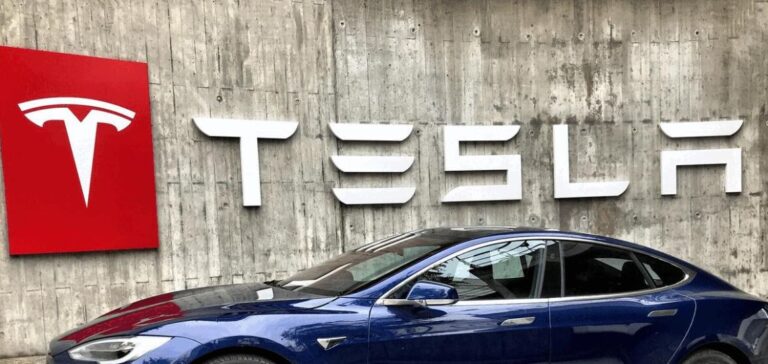Automaker Tesla plans to double its electric vehicle production in the United States within two years, said its Chief Executive Officer, Elon Musk, during an event at the White House alongside U.S. President Donald Trump. This announcement comes amid mounting pressure on the company, whose financial results and commercial performance have recently disappointed investors.
Strengthening production despite declining sales
Elon Musk presented this expansion as a commitment to Donald Trump’s industrial policies, emphasizing that Tesla would continue its investments in the United States despite slowing demand. “Tesla will double its production in the United States over the next two years,” he stated, without specifying the exact capacities of the factories involved or the additional volumes expected.
The announcement comes as Tesla recorded its first annual decline in global sales in 2024, with a 1% drop to 1.79 million units. While still the leader in the electric vehicle market, the brand is facing increasing competition from Chinese manufacturer BYD and other emerging players.
Financial results under pressure
Tesla reported lower-than-expected results for the fourth quarter of 2024, with a 71% year-over-year drop in net profit. Its revenue grew by only 2%, a much slower pace than in previous years. As a result, its stock fell 15% on Monday, its worst daily performance since 2020, before rebounding 3.79% on Tuesday.
The situation remains concerning in several key markets. In China, Tesla recorded a 49% drop in sales in February, while in Europe, registrations fell by 26% in France and 76% in Germany year-over-year. Meanwhile, the European electric vehicle market grew by 34% over the same period, highlighting Tesla’s specific challenges amid increasing competition.
A bet on autonomy with the Cybercab
Despite these challenges, Elon Musk confirmed the launch of Cybercab production, a fully autonomous robotaxi, at Tesla’s Texas factory in 2026. This vehicle, which will have neither a steering wheel nor pedals, is expected to begin trials in Austin as early as June 2025. “Cybercab production starts next year in Texas, and it will have full autonomous driving,” Musk stated.
As the company seeks to revitalize its sales and reassure investors, this announcement highlights Tesla’s strategy to accelerate the adoption of autonomous technologies, a bet that remains uncertain in the short term in an evolving industry.






















